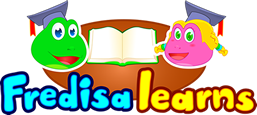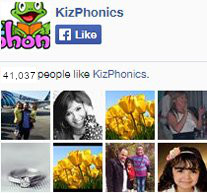Worksheets for Kindergarten Phonics: A Vital Tool for Early Literacy
Phonics education is crucial for laying a strong foundation for reading and writing. Especially for kindergarteners, it's a time of exploration, discovery, and building blocks for their future literacy skills. One of the most effective tools to aid this journey is the use of worksheets. In this article, we delve deep into the world of worksheets on phonics for kindergarten, understanding their significance, and how to use them effectively.
The Importance of Kindergarten Worksheets Phonics
Kindergarten marks the phase where children take their initial steps into the realm of formal education. The use of kindergarten worksheets phonics ensures:
Structured Learning: Worksheets provide a structured way of introducing phonetic concepts.
Hands-on Practice: They offer children an opportunity to practice sounds, letters, and their relationships.
Self-paced Learning: Every child learns differently. Worksheets allow children to work at their own pace.
Assessment: Teachers and parents can gauge a child's understanding and areas of improvement.
Exploring Different Types of Kindergarten Phonics Worksheet
Letter Recognition Worksheets: These focus on introducing individual alphabets, their sounds, and shapes.
Blending and Segmenting Worksheets: They help children practice blending sounds to form words and segmenting words into individual sounds.
Printable Phonetic Alphabets: Printable sheets that have pictorial representations corresponding to each phonetic sound.
Rhyming Worksheets: These encourage children to identify words that sound similar.
A treasure trove of diverse worksheets catering to various phonetic concepts can be found at kizphonics.
Tips for Effectively Using Worksheets on Phonics for Kindergarten
Interactive Sessions: Instead of simply handing out worksheets, make the process interactive. Discuss each section of the worksheet, inviting questions and observations.
Incorporate Multimedia: Use audio clips or videos to complement the worksheet. For instance, when using a worksheet focused on the 'ch' sound, playing a video that reinforces the sound can be beneficial.
Celebrate Small Achievements: Whenever a child completes a section or the entire kindergarten phonics worksheet, celebrate their achievement. This boosts their confidence.
Regular Revision: Phonics is all about practice and repetition. Revisit old worksheets periodically to reinforce the concepts.
For a wide range of educational resources, and not just limited to phonics, you can explore kizphonics official site.
Fact Section: FAQs
Q: Why are worksheets essential for kindergarten phonics education?
A: Worksheets provide structured learning, hands-on practice, cater to self-paced learning, and are excellent assessment tools.
Q: Where can I find high-quality kindergarten worksheets phonics?
A: Websites like kizphonics offer a plethora of quality worksheets on phonics for kindergarten.
Q: Do worksheets cater only to letter recognition?
A: No, worksheets cater to various aspects of phonics, from letter recognition to blending, segmenting, and understanding rhymes.
Q: Are printable phonetic alphabets different from regular alphabets?
A: Printable phonetic alphabets usually come with pictorial representations or cues that help children associate sounds with symbols or objects.
In conclusion, worksheets play an indispensable role in kindergarten phonics education. They offer a structured, interactive, and engaging way of introducing children to the world of sounds and letters. By integrating these tools into daily lessons, educators and parents can ensure that children have a well-rounded and robust foundation in phonics, setting the stage for future literacy success.










